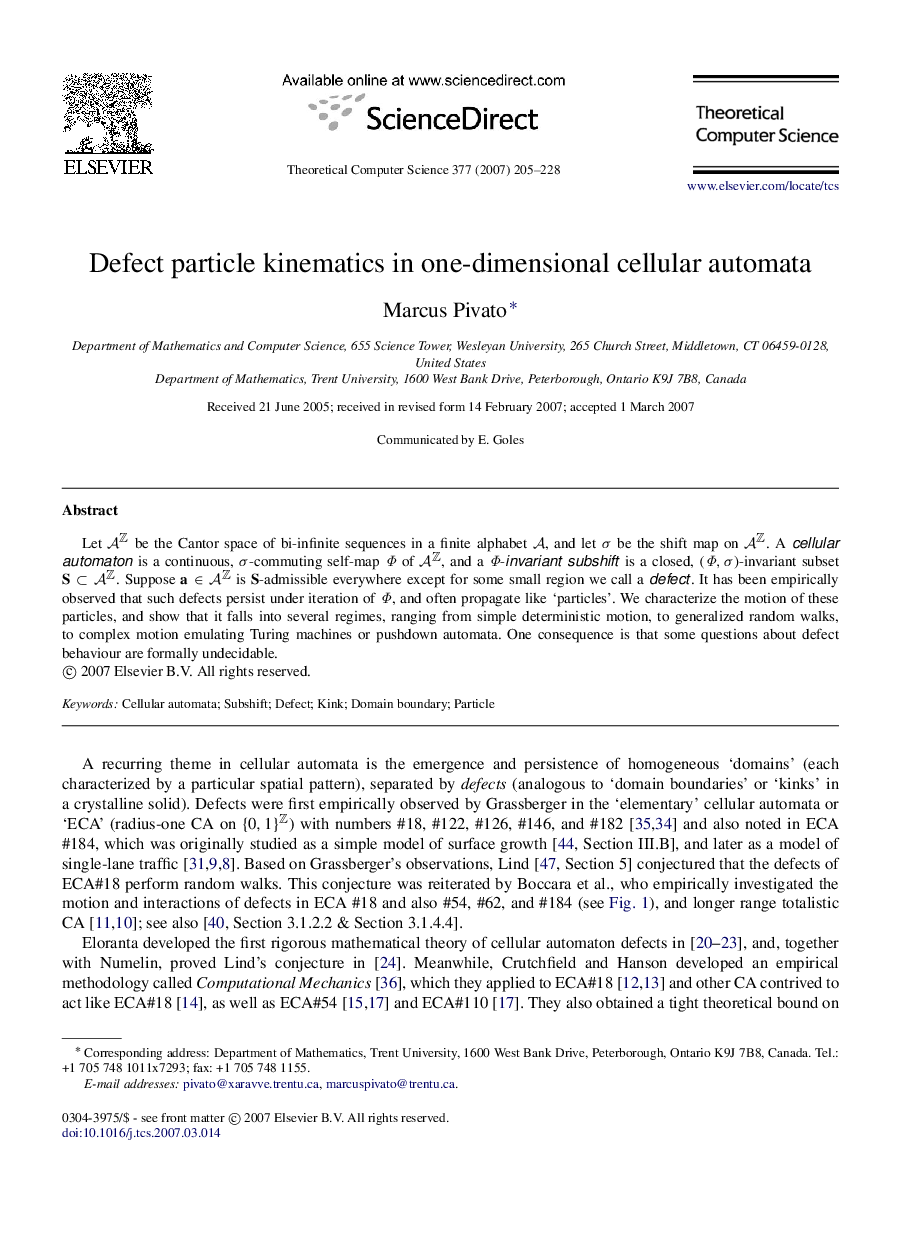| Article ID | Journal | Published Year | Pages | File Type |
|---|---|---|---|---|
| 438592 | Theoretical Computer Science | 2007 | 24 Pages |
Let AZ be the Cantor space of bi-infinite sequences in a finite alphabet A, and let σ be the shift map on AZ. A cellular automaton is a continuous, σ-commuting self-map Φ of AZ, and a Φ-invariant subshift is a closed, (Φ,σ)-invariant subset . Suppose is -admissible everywhere except for some small region we call a defect. It has been empirically observed that such defects persist under iteration of Φ, and often propagate like ‘particles’. We characterize the motion of these particles, and show that it falls into several regimes, ranging from simple deterministic motion, to generalized random walks, to complex motion emulating Turing machines or pushdown automata. One consequence is that some questions about defect behaviour are formally undecidable.
